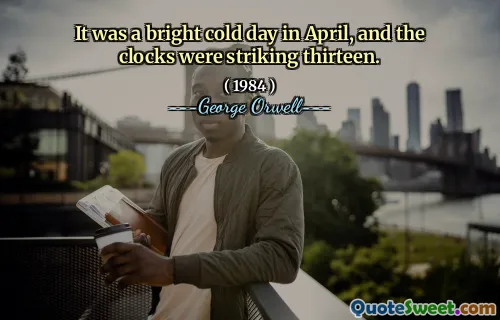...Coca-Cola and fries, the wafer and wine of the Western religion of commerce.
In "City of Golden Shadow," author Tad Williams explores the intersection of commerce and culture through the lens of familiar Western symbols. The comparison of Coca-Cola and fries to traditional religious sacraments emphasizes the deep-rooted consumerist values that have come to define modern society. This analogy suggests that commercial products serve as contemporary icons, much like religious figures in centuries past. By likening these items to "the wafer and wine" commonly associated with religious rituals, the narrative critiques how commercialism has taken on a quasi-religious significance. The notion implies that consumption today fills a spiritual void for many, transforming everyday experiences into a quest for meaning through consumer goods.
In "City of Golden Shadow," author Tad Williams explores the intersection of commerce and culture through the lens of familiar Western symbols. The comparison of Coca-Cola and fries to traditional religious sacraments emphasizes the deep-rooted consumerist values that have come to define modern society. This analogy suggests that commercial products serve as contemporary icons, much like religious figures in centuries past.
By likening these items to "the wafer and wine" commonly associated with religious rituals, the narrative critiques how commercialism has taken on a quasi-religious significance. The notion implies that consumption today fills a spiritual void for many, transforming everyday experiences into a quest for meaning through consumer goods.
